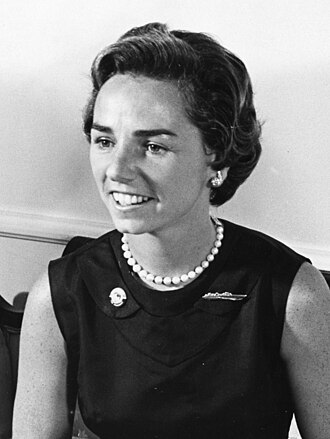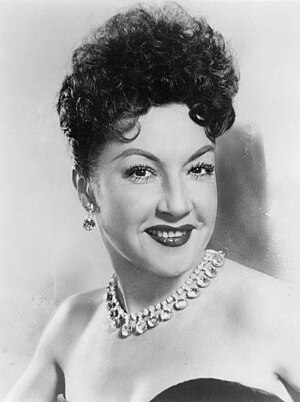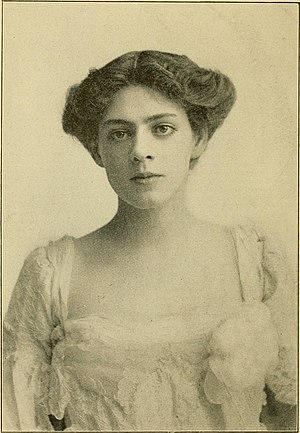Discover Your Roots
SIGN UPDiscover Your Roots
SIGN UPEthel is a female given name of English origin, meaning "noble." It derives from the Old English word "æthel," which translates to "noble." The name has historic significance, often appearing as the first element in Anglo-Saxon names, both masculine and feminine. Ethel gained popularity as a feminine given name in the mid-19th century, inspired by characters in novels and notable figures like the actress Ethel Barrymore. It reached its peak in the 1890s but gradually declined in the 20th century. Despite being primarily a female name, Ethel was occasionally used as a masculine given name during the late 19th and early 20th centuries. The name has been associated with remarkable individuals and fictional characters, contributing to its enduring legacy.

Ethel Kennedy, born Ethel Skakel on April 11, 1928, was an American human rights advocate and the wife of U.S. senator Robert F. Kennedy. She was born in Chicago, Illinois, and raised in Greenwich, Connecticut. Ethel attended Manhattanville College and met Robert during a ski trip in 1945. They married in 1950 and had 11 children. Ethel and Robert were known for their impressive gatherings at their home, Hickory Hill, and their eclectic guest lists. Ethel was supportive of her husband's political career, and after President Kennedy's assassination, she stood by Robert as he campaigned for and won a seat in the United States Senate. Ethel was also a devout Catholic and an advocate for various social causes. She passed away on October 10, 2024. Throughout her life, Ethel Kennedy was dedicated to her family and championed human rights, leaving a lasting impact on American society.

Ethel Merman, born Ethel Agnes Zimmermann, was an iconic American singer and actress, renowned for her powerful and distinctive voice. She earned the title of "the undisputed First Lady of the musical comedy stage" due to her leading roles in Broadway musicals such as Anything Goes, Annie Get Your Gun, Gypsy, and Hello, Dolly! Merman also made a mark in the film industry with notable roles in productions like Anything Goes (1936) and There's No Business Like Show Business (1954).Throughout her illustrious career, Merman received numerous accolades, including the Tony Award for Best Actress in a Musical for her performance in Call Me Madam, a Grammy Award for Gypsy, and a Drama Desk Award for Hello, Dolly! She was also known for introducing several Broadway standards, including "I Got Rhythm" and "Everything's Coming Up Roses" from Gypsy, and the classic Cole Porter songs "I Get a Kick Out of You" and "Anything Goes."Merman's journey to stardom began in her early years, where she demonstrated her talent and passion for singing. Despite initial challenges, she persevered and landed a contract with Warner Bros., marking the beginning of her remarkable career in entertainment. Ethel Merman's contributions to the world of musical theater and film continue to inspire and resonate with audiences worldwide.

Ethel Barrymore, born Ethel Mae Blythe, was an iconic American actress and a prominent member of the renowned Barrymore acting family. Her illustrious career spanned six decades, establishing her as "The First Lady of the American Theatre." Notably, she garnered four Academy Award nominations for Best Supporting Actress and clinched the prestigious award for her role in "None but the Lonely Heart" (1944). Hailing from a lineage of actors, Ethel was the daughter of Maurice Barrymore and Georgiana Drew, and the sister of acclaimed actors John and Lionel Barrymore. Her early exposure to the world of theater and her love for baseball were defining elements of her upbringing. Ethel's Broadway debut in 1895 marked the commencement of her compelling journey in the world of acting, propelling her to stellar performances in numerous acclaimed productions. Her involvement in the Actors' Equity Association strike in 1919 and her unwavering support for the cause showcased her commitment to the welfare of performers. Throughout the 1920s and 1930s, Ethel continued to captivate audiences with her stellar portrayals, notably excelling in W. Somerset Maugham's "The Constant Wife" in 1926. Ethel Barrymore's enduring legacy as a trailblazing actress and her profound impact on American theater solidify her status as a revered figure in the entertainment industry.

Ethel Waters (1896–1977) was an influential American singer and actress known for her performances in jazz, swing, and pop music. Her notable recordings include "Dinah," "Stormy Weather," "Heat Wave," and "Supper Time." Waters broke barriers as the second African American to receive an Academy Award nomination, the first to star in her own television show, and the first African-American woman to be nominated for a Primetime Emmy Award. Born in poverty, she overcame a difficult childhood, including an abusive marriage at the age of 13, to achieve success in the entertainment industry. Waters' career began in Baltimore and took off in Harlem during the 1920s, where she became a prominent figure in the Harlem Renaissance. Her recordings with Black Swan and Paramount made her the highest paid black recording artist of her time. Through her talent and perseverance, Ethel Waters left an indelible mark on American entertainment history.

Ethel Lina White (2 April 1876 – 13 August 1944) was a prominent British crime writer best known for her novel "The Wheel Spins" (1936), which inspired Alfred Hitchcock's 1938 film "The Lady Vanishes." Born in Abergavenny, Monmouthshire, to William and Ethel C White, she grew up in Fairlea Grange, where she began writing as a child. White's literary journey began with the publication of mainstream novels before transitioning to crime fiction in 1931 with "Put Out the Light." Throughout the 1930s and 1940s, she gained widespread recognition in both Britain and the United States as a leading crime writer, often compared to renowned authors like Dorothy L. Sayers and Agatha Christie. White's works have experienced a revival in recent years, with adaptations of "The Lady Vanishes" and "The Unseen" bringing renewed interest in her storytelling. Ethel Lina White passed away in 1944 due to ovarian cancer, leaving behind a literary legacy that continues to captivate audiences. In 2021, her birthplace in Abergavenny was commemorated with a blue plaque, honoring her enduring contributions to the world of crime fiction.
All images displayed on this page are sourced from Wikipedia or Wikimedia Commons.We use these images under their respective Creative Commons or public domain licenses. Wherever applicable, author attributions and license information are provided. If you believe an image is used incorrectly or outside its license terms, please contact us so that we can review and correct the issue.